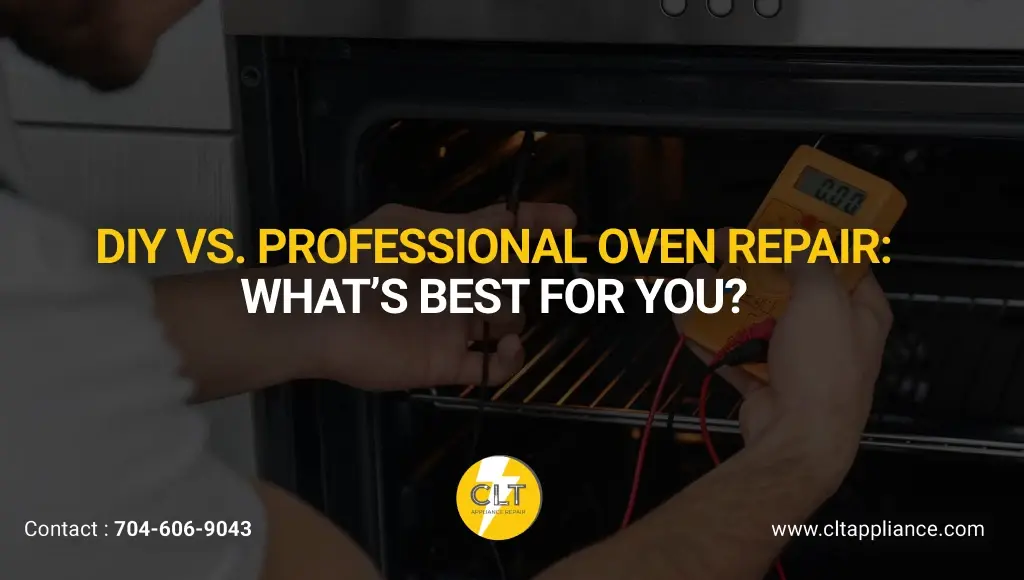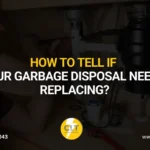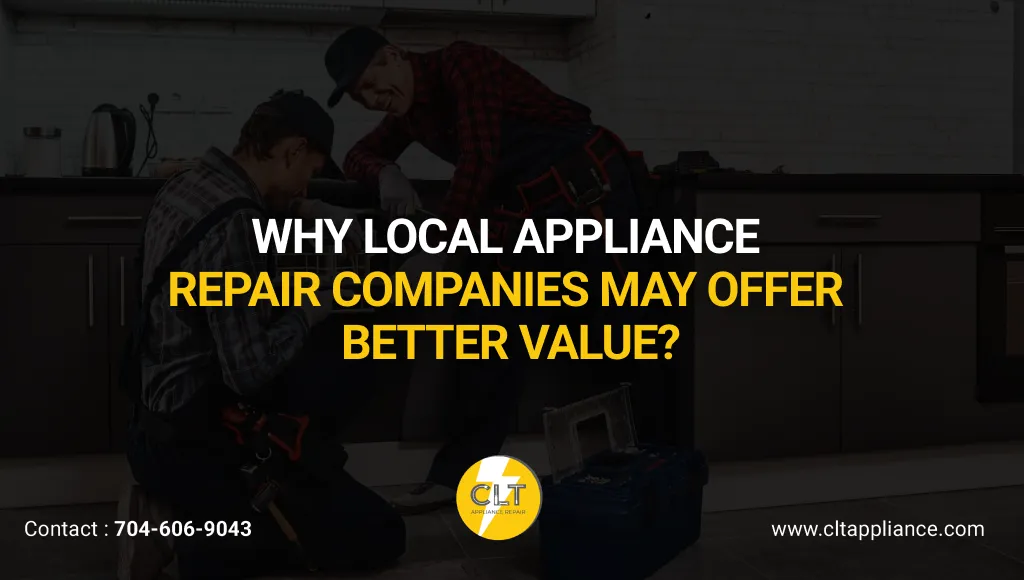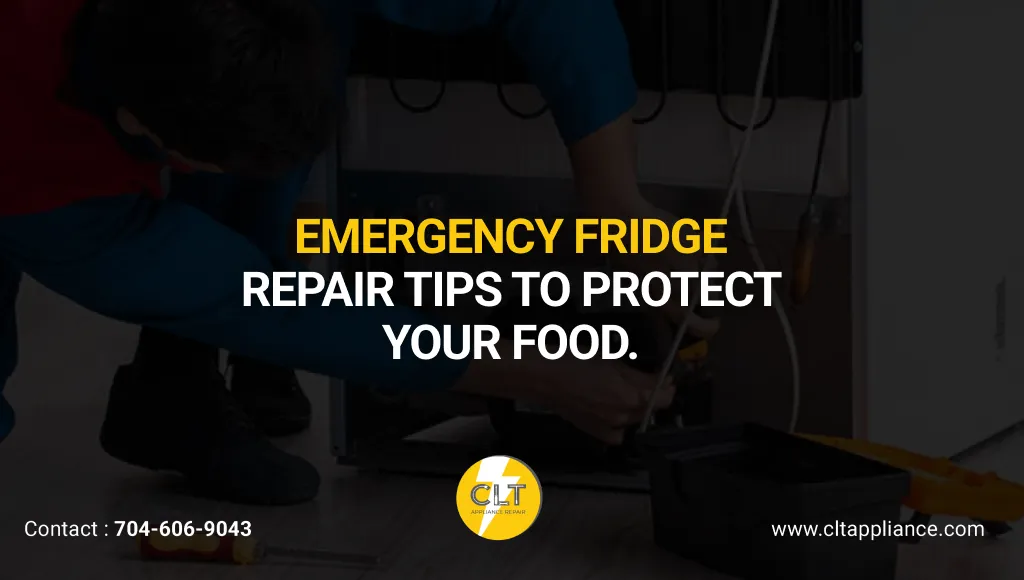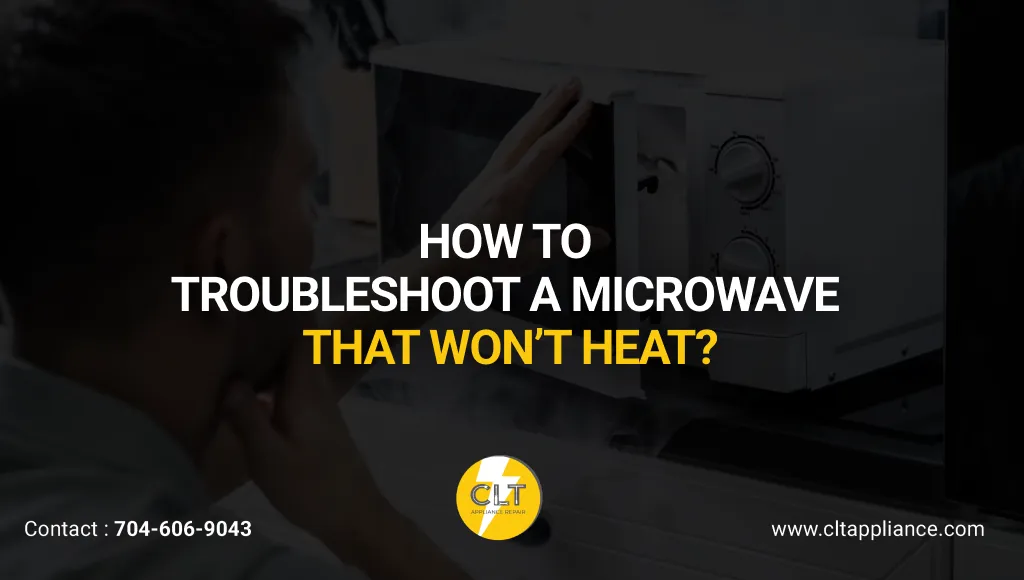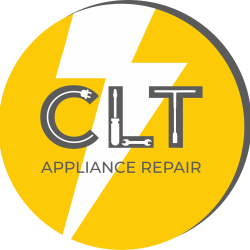Your oven stops heating right before dinner guests arrive. Sound familiar? According to Business Wire, 54% of Americans have experienced an oven breakdown while preparing a holiday meal. This kitchen nightmare affects thousands of Charlotte homeowners every year, leaving them with a tough choice: Grab some tools and try fixing it yourself, or call a professional repair service.
The decision between DIY and professional oven repair can save you money or cost you much more if things go wrong. Some fixes are simple enough for most homeowners, while others need special training and could be dangerous to try alone.
Want to make the smart choice for your oven troubles?
CLT Appliance Repair helps homeowners navigate these decisions every day, and we’re here to guide you through what’s safe to try and when to step back.
[Get Expert Help Now: 704-606-9043]
What Are the Most Common Oven Problems?
Understanding the most common oven issues helps you make better decisions about repairs. Some problems are simple fixes, while others need professional attention to avoid safety risks. These problems can range from simple fixes to complex electrical or gas system failures.
The most frequent oven problems include:
- The oven is not heating up or heating unevenly
- Temperature readings that don’t match the actual heat
- Broken heating elements (visible coils or hidden bake elements)
- Broken door seals are letting heat escape
- Control board or timer breakdowns
- Gas ignition problems (for gas ovens)
- Strange noises, smells, or visible sparking
Quick Tip:
Try basic troubleshooting first if your oven shows simple symptoms like uneven cooking or minor temperature issues. Call professionals right away if you notice gas smells, electrical sparking, or repeated failures after attempted fixes.
What Are the Pros and Cons of DIY Oven Repair?
DIY repairs can save money, but come with serious risks that every homeowner should understand. Making the wrong choice could lead to bigger problems or safety hazards.
Is DIY Oven Repair Worth Attempting?
DIY oven repair can save money on simple fixes like replacing light bulbs or cleaning parts, but it carries big risks for complex electrical or gas-related problems.
What Are the Benefits of Fixing Your Own Oven?
Cost savings stand as the biggest advantage of DIY repair. Simple parts like oven lights cost under $10, while service calls typically start around $75-100.
Key advantages include:
- Quick action when your oven breaks down
- Learning new skills and understanding how your appliance works
- Complete control over timing and repair approach
- Potential savings of $50-200 on labor costs for simple fixes
Flexibility matters too. You can work on your own schedule instead of waiting for an appointment, which helps during busy periods or emergencies.
What Are the Risks of DIY Oven Repair?
Safety hazards pose the greatest risk with DIY oven repairs. Electric ovens carry shock risks, while gas ovens can leak dangerous gases if connections get damaged.
Major risks include:
- Electric shock from 240-volt connections in electric ovens
- Gas leaks leading to fire or explosion risks
- Voiding manufacturer warranties with unauthorized repairs
- Creating more expensive damage through the wrong procedures
- Lacking special diagnostic tools needed for complex problems
Tired of wondering whether your oven problem is too risky to tackle? CLT Appliance Repair’s certified technicians can quickly check any oven issue and explain exactly what’s involved, giving you peace of mind about the safest repair approach.
[Schedule Your Safety Assessment: 704-606-9043]
Which Oven Repairs Are Safe for DIY?
Replacing oven light bulbs, cleaning heating elements, and changing basic door seals represent the safest DIY oven repair tasks for most homeowners.
Safe DIY repairs include:
- Replacing burnt-out oven light bulbs
- Cleaning bake and broil elements (when cool)
- Replacing worn door gaskets or seals
- Adjusting oven racks or replacing damaged ones
- Basic calibration using oven thermometers
Stop and call professionals when you encounter wiring, gas connections, control boards, or anything requiring appliance disassembly beyond removing racks and drip pans.
What Are the Advantages of Professional Oven Repair?
Professional repair services bring skills and tools that most homeowners don’t have. Understanding these benefits helps you make better decisions about when to call for help.
The Technical Edge
Technical skills represent the primary advantage of professional repair. Certified technicians understand complex electrical systems, gas connections, and modern electronic controls that require special knowledge.
Professional advantages include:
- Accurate diagnosis using professional testing equipment
- Access to manufacturer-approved parts and repair procedures
- Warranty protection on both labor and replacement parts
- Insurance coverage protects your home during repairs
- Time savings through efficient, experienced repair methods
Quality assurance matters significantly. CLT Appliance Repair certified technicians complete repairs correctly the first time, preventing repeat failures that often happen with DIY attempts.
What Do DIY Vs Professional Oven Repairs Truly Cost?
Cost comparison helps homeowners make smart financial decisions about oven repairs. Understanding real costs prevents surprises and helps you budget properly. DIY repairs typically cost $10-75 for parts alone, while professional repairs range from $125-350, including labor, parts, and warranty coverage.
Typical DIY costs:
- Oven light bulbs: $5-15
- Heating elements: $25-85
- Door seals: $30-60
- Basic tools (if needed): $50-100
- Time investment: 2-6 hours
Professional repair costs:
- Service call fee: $75-100
- Labor rates: $50-125 per hour
- Parts with markup: 20-40% above retail
- Total typical repair: $125-350
Pro Tip:
Consider replacement when repair estimates exceed 50% of a new oven’s cost, especially for appliances over 10 years old or those requiring multiple major part replacements.
How Do You Decide Between DIY and Professional Repair?
Making the right choice between DIY and professional repair requires careful consideration of several key factors. This decision affects your safety, wallet, and appliance’s future performance.
Consider the problem’s complexity, safety risks, warranty status, appliance age, and your personal skill level when deciding between DIY and professional repair.
Decision checklist:
- Problem complexity (simple cleaning vs electrical work)
- Safety concerns (gas leaks, electrical components)
- Current warranty status and coverage terms
- Appliance age and overall condition
- Your comfort level with tools and technical tasks
- Availability of proper tools and replacement parts
Red Flags Requiring Professional Help
Gas smells, electrical sparking, recurring problems after DIY attempts, control board failures, or any situation where you feel uncertain about safety procedures.
Don’t risk your family’s safety or your home’s value on uncertain repairs. CLT Appliance Repair offers honest assessments and clear pricing, so you know exactly what you’re dealing with before making any repair decisions.
[Get Your Honest Estimate: 704-606-9043]
What Tips Ensure Successful Oven Repairs?
Following proper procedures and safety guidelines ensures better outcomes regardless of whether you choose DIY or professional repair. These tips can save time, money, and prevent accidents.
- Always Turn Off Power First: Unplug electric ovens or flip circuit breakers before starting any work.
- Shut Off Gas Completely: Turn off gas at both the appliance and the main meter for safety.
- Use The Right Tools: Invest in proper appliance repair tools instead of makeshift solutions.
- Follow Manufacturer Guides: Read manuals and safety procedures specific to your oven model.
- Work in Good Conditions: Ensure adequate lighting and ventilation in your work area
- Buy Quality Replacement Parts: Source parts from authorized dealers for compatibility and reliability.
- Document Everything: Keep detailed records of repairs, parts used, and maintenance dates
- Test Thoroughly: Check all functions before considering the repair complete.
- Know When To Stop: Call professionals immediately if you encounter unexpected problems.
- Keep Warranty Papers: Maintain all documentation for future warranty claims and service calls.
How Do You Find Reliable Oven Repair Professionals?
Finding trustworthy repair professionals protects your investment and ensures quality work. Knowing what to look for saves time and prevents problems with unqualified technicians. Choose repair services with proper licensing, positive customer reviews, experience with your specific oven brand, and clear pricing policies.
Essential qualifications to verify:
- Valid business licenses and insurance coverage
- Manufacturer certifications for your appliance brand
- Positive reviews on multiple platforms (Google, BBB, Nextdoor)
- Clear pricing structure and warranty policies
- Local presence and established reputation
Questions to ask before hiring:
- Do you have experience with my oven brand and model?
- What’s included in your service call fee?
- Do you provide warranties on parts and labor?
- Can you provide references from recent customers?
- Are your technicians certified and insured?
DIY or Pro? Make Your Smart Choice
The choice between DIY and professional oven repair depends on your specific situation, safety considerations, and comfort level with appliance work. When your oven breaks down, you need reliable solutions from professionals who understand Charlotte homes and busy family schedules.
Don’t let oven problems disrupt your daily routine or risk your family’s safety with uncertain DIY attempts. CLT Appliance Repair brings over years of trusted service to Charlotte homeowners, with certified technicians.
[Book A Technician Now: 704-606-9043]
FAQs
Is it safe to repair my oven myself?
DIY oven repair can be safe for minor issues like replacing light bulbs or cleaning. But attempting repairs involving electricity or gas can be dangerous and should be left to professionals.
Will fixing my oven myself void the warranty?
Yes, attempting DIY repairs on your oven may void the manufacturer’s warranty. This is especially true if you damage the appliance or use unauthorized parts during your repair attempts.
What oven repairs should only be done by professionals?
Repairs involving electrical wiring, gas lines, or control boards should always be handled by qualified technicians. This helps avoid safety risks and further damage to your oven.
Are professional oven repairs worth the extra cost?
Professional repairs provide expert diagnosis, safety, and warranty protection. They also offer long-term reliability, making them worth the cost for complex or high-value appliances.
What are the main risks of DIY oven repair?
The main risks include electrical shock, gas leaks, and fire hazards. You may also void warranties or cause more expensive damage than the original problem required.
How do I decide between DIY and professional oven repair?
Choose DIY for simple maintenance if you have the right tools and knowledge, but opt for professional repair if the issue involves safety concerns or you’re unsure about procedures.
Author

- John Bennett
- John Bennett is a seasoned appliance repair specialist at CLT Appliance Repair, where he brings over a decade of technical expertise and a strong commitment to customer satisfaction. With a background in electrical and mechanical systems, John has built a reputation for reliable, efficient, and honest repair services across a wide range of household appliances-including refrigerators, washing machines, ovens, and more.

